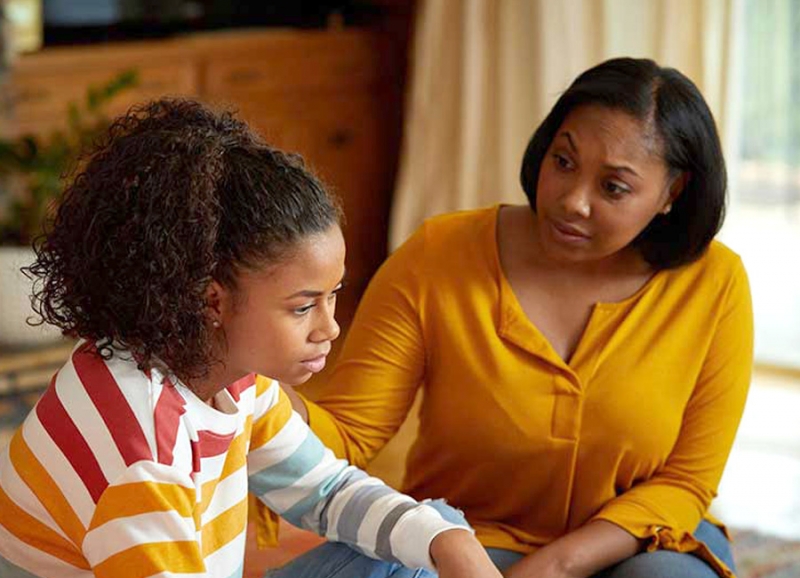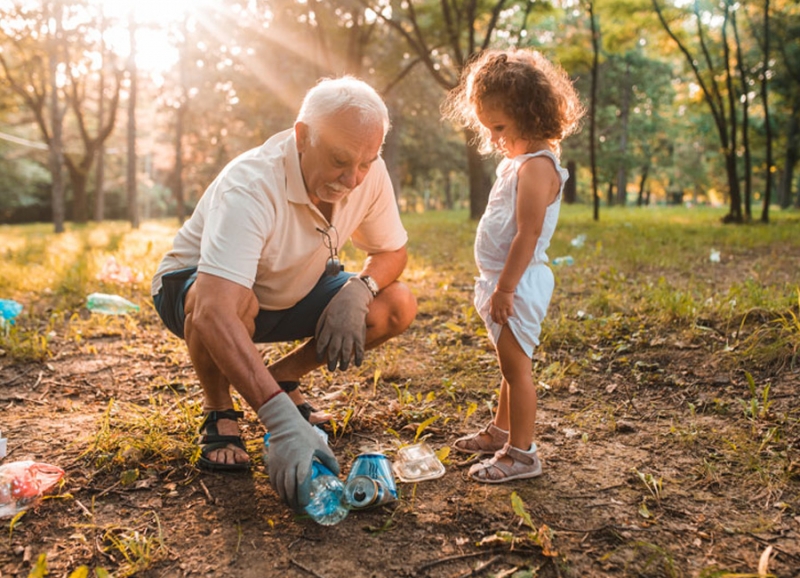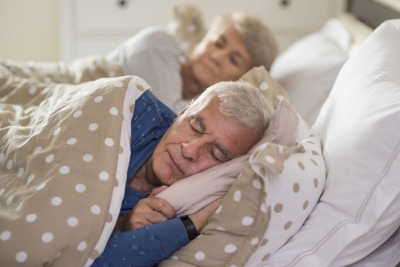Residents in senior living communities often delight in receiving visitors, especially when those visitors include children. Even so, it can be quite difficult, emotionally, to bring the kids along to a long term care facility. With a little preparation, patience and compassion, a family’s first visit to an elder care community can be made meaningful for all family members—especially for the elder and grandchildren.
Your aging loved one, who is residing in long term care, may have changed a great deal as a result of their physical and emotional health. They may display different behaviors, personality changes, and memory deficits that even the most well-prepared adult can struggle to see. So, how do you prepare a child for their first visit with a grandparent who is residing in an elder care community?
Prepare the Kids Before they Arrive at the Senior Living Facility
A few days before the visit to see their grandparents or other aging loved ones who are in residence at a senior living facility, invite the children to sit down and talk about the upcoming visit. Start by asking the children what they remember most about this family member. Reinforce that those positive qualities and memories they have will always be in their hearts, and the elder’s heart, too. It just might be harder for grandma or grandpa to remember all of those wonderful memories.
Talking with Very Young Kids about a Loved One in Elder Care
For very young kids, under the age of 10, you’ll want to remind them of the physical and cognitive limitations the older adult has, but in simpler terms. Rather than giving the kids a long list of “Don’ts” (Don’t jump on grandpa, don’t try to dance with grandma, don’t leave your shoes on the floor in her room)… focus on the person they are visiting and the kind of caring attention they need from all family visitors:
Grandma is not as strong as you are. You are much younger. Remember to be gentle with your hugs and handshakes.
Grandpa is not able to run and jump and play like he once did. While he can’t play catch with you, he can play cards and board games. It would be nice to bring some games with us.
You know how we all forget things from time-to-time? (Give an example of forgetting items at the grocery store or leaving things at school) Well, Mimi’s memory is not so great anymore. That can happen when you get older and have SO many memories in your head. They can get mixed-up. She might even forget your name! Just remind her and try not to get upset that she forgot; she feels badly when she does not remember. Just encourage her to learn your name again while we are there and she may start to recall all kinds of great memories with you.
Sometimes granny or pappy gets easily upset if his things are touched or moved around. You know, how you sometimes get upset when someone takes your toy without asking. It’s a good idea to ask before you touch things in the room.
Remember not to give pap pap any food or candy, even if he asks for it. He has to follow a special diet that help his medications work best.
It is a good idea to let the children speak to the elder family member by phone a few times before you arrive. This may lead to any questions about how the grandparent sounds or speaks.
Talking with Older Kids about a Loved One in Elder Care
Children age 10 and up can handle more information, including basic medical information. You might say:
Nana has a medical condition called “_____” which affects her ability to (remember, walk, speak for long periods, breathe easily) and can make them feel (tired/easily agitated/sad).
Allow older kids the time to ask questions. If they are teenagers, they may be keen on learning more. You can research information online; the health association websites for particular medical conditions are a good place to start (Alzheimer’s Association, for example).
Regardless of the age of our children, always be honest with them and use age-friendly language. Remember to emphasize why your loved one is living in an elder care community and how their life is being made better (more comfortable, convenient) there because they live with other people in similar situations and can receive the daily living care and healthcare that they need.
Inform the Community of Your Planned Visit
This is a step that families don’t often think about when they visit a senior living or long term care facility with children. Yet, it’s important that the facility know the age of the children coming to visit and when you will be there. The facility concierge can inform you of the schedule of the day, may have tips to share about making the visit go smoothly, alert you to any events or gatherings at the community, and prepare you if there have been unexpected changes in your loved one’s health.
Some elder care communities will have a special area for families with young children to meet, especially if your loved one’s room is not spacious enough for more than a few people. These spaces can give young children a little extra room to roam, to observe, and to try to make sense of their grandparent’s new situation.
Plan an Activity
As mentioned above, it’s a good idea to bring an activity that your child and the elder family member can share together. Sometimes the community will have these things on site, as well. Bring an activity that will keep your child busy if they become uncomfortable or bored, such as a digital device, a favorite toy, or something else they really like to do.
Some other activities include:
- Card games
- Simple puzzle
- etch-s-sketch
- coloring books
- Molding clay
- Board games
- Singing, if there’s a holiday celebration
- Make decorations (snowflakes, snowman made of cotton balls, painted eggs)
If the weather is nice, plan to walk (or transport in a wheelchair) your family member outside for fresh air and conversation.
You might also bring pictures to serve as conversation starters and recollection of fond memories from days past.
A Word About Taking Photos
Of course, you want to capture memories with your elder family member. Do be prepared for the possibility that the elder or the children may not want to take photos. The elder may not want to be remembered as being ill. Likewise, even some teenagers have trouble seeing their grandparents in a weakened state and standing alongside for a photo may make them uncomfortable. Now is not the time to argue, but to accept their wishes and continue to have a happy visit.
Every Everbrook Senior Living community is intentionally designed to meet the needs of your elder family member in a compassionate, vibrant and caring atmosphere. From personal and health care needs to dining, recreation, wellness and therapeutic activities, your family member has access to all the services they need to experience the best quality of living throughout their older adult years. All of us here at Everbrook understand what it means to care for an older adult, both those in good health and those whose health is in decline. We are committed to providing a community for elders and their beloved family members where authenticity, trust, compassion, and respect are paramount.
If you are considering elder care for your aging loved one, contact us to schedule a visit at one of the Everbrook Senior Living communities.
Resources
Elder Care Alliance https://eldercarealliance.org/blog/tips-for-bringing-kids-to-visit-elder-care-communities/
Today’s Caregiver https://caregiver.com/articles/nursing-home-visits/








